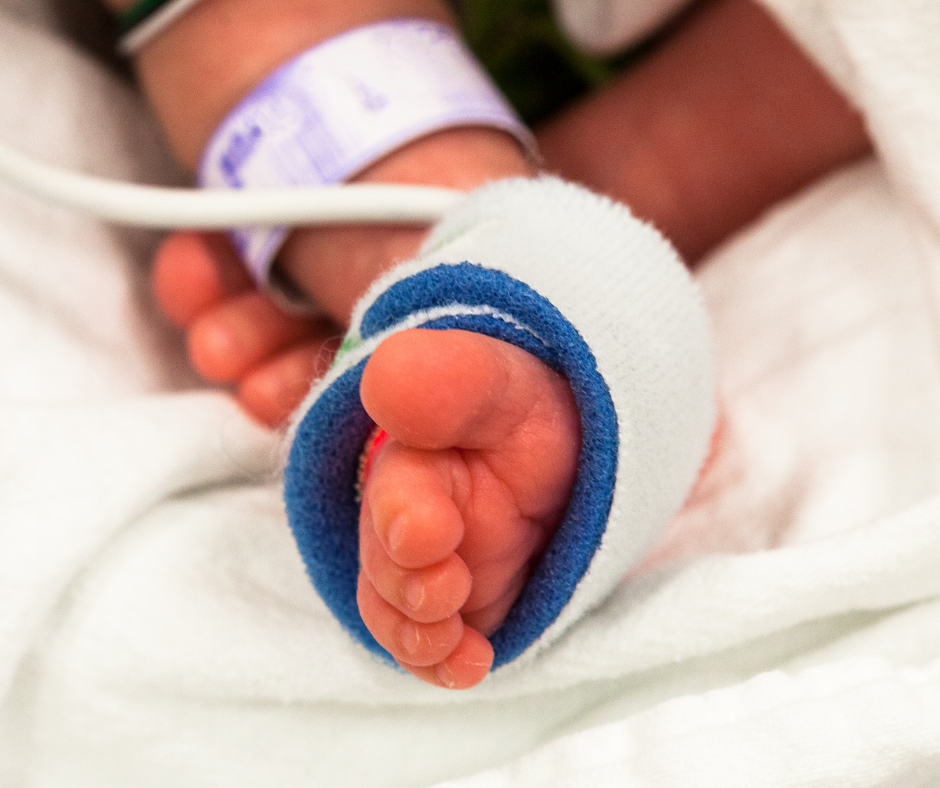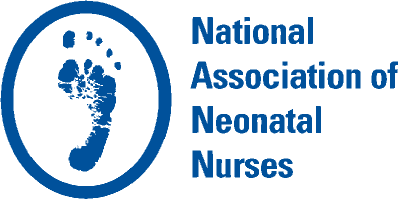Watching You Grow, and Letting You Go: The Joys and Challenges of Primary Nursing
By Razieh Alizadeh, BSN RN
NANN Footprints: Stories from the NICU November 2021
 “Do not become too attached.” For many nurses, this is the advice we often hear at the beginning of our nursing education. It is a warning reiterated to us by our coworkers when we enter the workforce. It is a mantra we constantly repeat to ourselves the longer our patients stay in the hospital and through the deeper connections we build with them as a result.
“Do not become too attached.” For many nurses, this is the advice we often hear at the beginning of our nursing education. It is a warning reiterated to us by our coworkers when we enter the workforce. It is a mantra we constantly repeat to ourselves the longer our patients stay in the hospital and through the deeper connections we build with them as a result.
Some may argue that avoiding attachments is more feasible in the NICU compared to other units. Neonates cannot talk. They cannot display a wide palette of emotions or engage in meaningful conversations with nurses the same way an adult patient can.
Instead, neonates communicate with us in other ways. They cry to signal pain or hunger. They wrap their whole hand around the base of our thumbs to seek comfort. Their heart rates steady when we hold them and sometimes, if they stay long enough, they flash us a few smiles. It is those little interactions that tug at our hearts and stay in our memories. Their vulnerability elicits a sense of protectiveness within us while their ability to overcome even the most complex illnesses brings us a sense of prideful wonder.
Primary nursing allows for the formation of even stronger bonds because we spend each shift with the same neonate and their family, watching them grow. We experience every milestone, every hurdle, and every victory with them. We shed tears with the parents as they hold their baby for the first time. We wonder where all the time went with every diaper size the baby grows out of. And we smile fondly as we recall the days our 4 kg patient could easily fit in just one hand.
Although we enjoy and value every moment we experience with our patients, there can also be a bittersweetness to primary nursing. Because the more time we spend with a neonate and their family, the harder it becomes to eventually let them go. I experienced this most potently the night I transferred Emma* to the pediatrics unit.
Emma was the first microprem baby I cared for in the NICU. She was the epitome of ‘small but mighty’ and overcame just about any complication a neonate of her size could experience. Constant, reoccurring infections, several intubations, trouble feeding – Emma had it all. There were a few points in her life where the care team was unsure of her prognosis. But even after she coded, she survived.
When Emma celebrated her seventh month of life on our NICU unit, she was officially crowned as our oldest patient ever. It was also at that age where she was finally stable enough to be transferred to a different, less intensive ward.
Her transfer was a big ordeal on our unit because so many nurses had the pleasure of looking after her during her long stay. The night she moved, she had dozens of nurses, doctors, respiration therapists, and other members of the healthcare team visit her – to catch one final glimpse at the girl who had overcome all odds. We gave her a farewell procession as we rolled her isolette out of the NICU, which had been her only home, towards her new temporary one.
I had the honour of transferring Emma to the pediatric ward and then spending the rest of my shift there, looking after her. She had one of her best sleeps that night. But in the morning, when I stepped into her room for a final goodbye, she was wide awake, staring up at me with those luminous eyes.
Before I could even understand why I was so emotional, tears began to roll down my face. I looked at this baby and every challenge she had overcome flashed through my mind. I could not help but compare the rough beginning of her journey to the point of stability she had reached. And as I said goodbye while she flashed me a bright smile, my happiness for her growth battled my sadness for having to part ways.
I allowed myself to cry and to feel every emotion I was feeling that day. At one point, I wondered how someone so small could make me feel such strong emotions and impact me so deeply. But it was because of those repeated interactions I had with her. The relationship I had spent seven months cultivating with her and her family. And although it may have been easier to say goodbye if I had not bonded with them, I would not trade those moments for anything.
Our goal, as NICU nurses, is to assist a family until they are well enough to ‘graduate’ from our unit. But as with any change, graduations can sometimes be difficult. What this experience has taught me, though, is that it is okay to be happy when a patient is discharged, and it is also okay to struggle with farewells. Forming attachments, especially in primary nursing, is only human. Because to become attached, one must first care. And is it not this concept of caring that is at the root of everything we do as nurses?
*Name has been changed to protect the patient's identity
Interested in sharing your Stories from the NICU? Contact Olivia Cardinale at This email address is being protected from spambots. You need JavaScript enabled to view it.
